
Photos and notes from Bouchercon 2023. Looking forward to next year in Nashville.
Bouchercon 2023 Notes
Writing Pods—When writing, the writer needs to be insulated, away from distractions such as pets and family.
Suspense and Tension
Check out Writers’ Police Academy. Another suggestion is to attend a citizens’ academy for a local police department or sheriff’s office.
The end of chapter should have a cliffhanger, something to urge the reader to continue reading.
Look at why it was done as well as who did it.
Focus more on action than description and setting. Describe what is important, what matters to what is happening or what develops the character. No need to describe their clothing, their homes, etc. unless it adds to the story. Let the reader’s imagination fill in those details.
For new characters, describe as little as possible, just enough for the reader to be able to distinguish the new character from others. Let the reader fill in the other details.
Dialogue – short sentences are better for conflict. Conversations are good ways to explain things and show characters’ personalities. It’s a good way to differentiate characters.
Try writing the dialogue as a script and read it to yourself out loud. It helps you create more natural dialogue.
For action scenes, put emotion into the action scenes, add human behavior.
Most action fights should be over very quickly. Fights rarely last very long. However, chase scenes do last longer.
Violence must have some significance to the story.
The reader needs to care about the character in violent scenes.
Action scenes need an aftermath which adds to the story. What is the result of the action scene and how does it add to the story.
When using first person, use interior dialogues.
Love scenes—if the story needs it, okay, if not, leave it out
It’s important that two characters establish an emotional connection. This helps the reader connect to the story.
Stop making changes when they aren’t making the story better. If they simply make the story different, don’t do it.
Money Laundering 101 (two to five percent of the world GDP is through money laundering.)
What is money laundering? It’s getting cash into the financial system so that it can’t be traced back to its illegal origins.
Ship cash to jewelry stores who made fake sales and deposited the money.
Bulk cash – ship it to a foreign country, route it through hotels, money exchanges, etc. and then bring it back to the United States and declare it. It’s not illegal to bring large sums of cash into the United States, although they will want to know where it comes from and how it was obtained.
Through international trade such as buying diamonds and gold before shipping the goods to another country.
Stock market – buy shares and sell them to another person, then to a second person, then to a third and so on.
Signs of money laundering
A new cash business where the money comes from is vague or questionable.
The business doesn’t look right – lots of money but few customers.
The owner lives beyond his means. When questioned about his background, it’s vague with no details on how he made his money.
What are the parts of money laundering?
Placement—getting the cash into the bank.
Hide it in a cash business. (surfs, people who deposit small amounts of money, usually less than $9,000.00 into various banks)
Depositing it offshore
Breaking it into small wires and preload debit cards
Hawala. Giving money to person A in one country, then that person contacts person B in another country. When the person who originally gave the money to person A contacts person B, he gets the money.
Layering. Hiding the link between the money and its criminal source. It is typically moving the money around so no one can tell where it came from.
Buy and sell products.
Do international trade.
Use the stock market.
Have ownership offshore in Cook Islands or Bahamas.
Integration. Moving clean money back into the legitimate economy.
Real estate
International Companies
Securities
Gems
Racehorses
How do banks stop it?
The Patriot Act and Bank Secrecy Act require anti-money-laundering procedures and responsibility.
Financial institutions must have compliance officers.
Must follow Know Your Client rules for all clients.
Report suspicious transactions.
Submit Suspicious Activity Reports (SAR) and Suspicious Transaction Reports (STR) to Financial Crimes Enforcement Network.
STR is for currency deposits greater than $10,000.
SAR is for any suspicious activity.
Illegal to tell the customer they’ve been reported.
FinCen is part of the Treasury Department. They get thousands of SARs every week.
But what about crypto?
Buyers and sellers are encoded in blockchain.
Companies can identify patterns and subpoena information.
Other problems. Murky ownership, fraud, redemption difficulty, volatility, regulator interest, big bank fears and requirements.
Agents and Editors
Agents need to consider where the market is going. Are there too many novels of the same kind on the market.
The publishers need to know if they can reach the readers. They are in business and need to make a profit.
The publishing industry has gate keepers, people who control what gets to editors, reviewers, and publishers. If one denies you access, try another. Often the decision is based on personal preference or which markets the individual has access to. For example, an agent may be able to sell a novel, but not short stories.
Currently, Tik Tok is helping sales by reaching lots of readers. But it is the fans on Tik Tok that are reaching other readers and driving sales.
It’s important to stay connected with the writing community. Know that publishers will hold an aversion to technology against writers.
Editors and publishers like comparisons (comps) to other writers. Recommend having at least four comps that are three to five years old. An example is “My novels use humor similar to David Rosenfelt’s novels.”
Too many “he said” and “she said.” Change it up.
Audio books are making gains due to technology. Still, recommend selling to print before going audio.
The key to marketing is to stand out from others.
One trick is to give a person two books and have that person give the book to a friend.
You get out of social media what you put into it. The more you post, the better.
Make sure your website reflects you. Use color pictures, talk about your books, your experiences. Try to use professional pictures of you. Focus on what makes you special as an author. Think of three questions you want others to ask you and answer them. Try branding yourself. What makes you unique. Your website is the hub of your social media presence.
Authors should do media training.
If possible, authors should work with a publicist. Book reviews and editors work with publicists.
Authors who are being followed have interesting things to say. Try being funny. Personal details and adventures can be interesting.
Editors and reviewers do Google authors and check websites.
Reviews on Amazon and Good Reads are important. The more reviews, the more likely others will buy the book.
Newsletters are important and try to include reader magnets such as a chance to win a free book or free short stories.
Writing About the Past in Foreign Country
Many of the social issues in the novels are still relevant today. For example, problems of the poor, survival, security, women’s rights, geo-political issues, health concerns, national and border security, international commerce, employment abuse, slavery, etc.
Should write about subcultures within a society/culture.
People are afraid of change because it might hurt a person’s financial situation. (I will lose money.) Most heroes in novels challenge social norms. The protagonist is deeply and emotionally involved in society and social justice and social issues.
Historical facts don’t come alive. But research is important. Imagine yourself in that place and time to create a truth beyond the facts.
You should bring in the politics of the time and place. Think of how you would have changed history if you had been there. For example, how would you save an important historical figure.
Don’t forget foreign cultures in the story. For example, “You’re looking fat.” is offensive in the United States, but in Singapore, it’s flattering. It means you are prosperous and doing well.
The use of an actual historical event/crime is a great hook for the novel. A good example is James Clavell’s novel Gaijin, which is based on the Namamugi Incident of 1862 and the Anglo-Satsuma War.
Historical accuracy of the time and location is important.
Readers need to be able to relate to the events, the issues, and the people of the time. There should be the same kinds of issues, but different factors, such as vaccines (smallpox/COVID 19) and pollution (smokestacks/cars).
Write about the personal values of the characters, the same as today.
A lot of times really interesting events take place, but these events may not fit in the novels. For example, once a lawyer used a hot poker to prove a person in court who said his left foot was numb. Another example is the story of a horse that swam across San Francisco Bay. The author ran into the daughter of the bartender who owned the horse years afterwards.
Writing Cozy Mysteries
Cozies need a hook such as a book binder who can go anywhere and falls in love with a spy, or a middle-aged woman moving from New York to a foreign country, or an aged person who is a gardener and things happen in the garden.
Cozies need a community that can provide stories for at least three books, if not more.
Research is important. All facts must be accurate. Visit and talk to experts in the field. For example, if cooking is part of the story, learn accurate cooking techniques (microwave dinners don’t count).
Research is character driven. It helps develop characters readers can relate to.
Cozies focus on relationships, then a murder happens.
Cozy heroes are not police officers, but they do have a relationship with the police. Remember, they cannot make an arrest.
Cozies tend to lack gratuitous violence, blood and gore, sex, and profanity. There is suspense and tension, but the violence is subtle. There is romance, but no sex scenes.
Do not kill children or dogs. Readers want a mystery, not to be sadden.
Writing about Dementia and Mental Illness
These stories need characters who are care givers for those with mental illness.
Many times, these patients have a lot of rage and frustration, as well as self-doubt.
Research the particular problem for these stories.
In the novel, think about how you would handle the situation.
For people with dementia, places like grocery stores are comfortable for them because everything is always in the same place.
True story—A mother attended her daughter’s wedding, but she forgot she was there. A few weeks later, the daughter shows the mother photos of the wedding. The mother gets angry because she wants to know why she wasn’t invited to the wedding and wants to know how the daughter managed to photoshop the mother in pictures.
Be sensitive to the topic of mental illness, what harm your writing can cause to the victims and to their families.

Volunteers are an important part of every Bouchercon.

Bouchercon 1
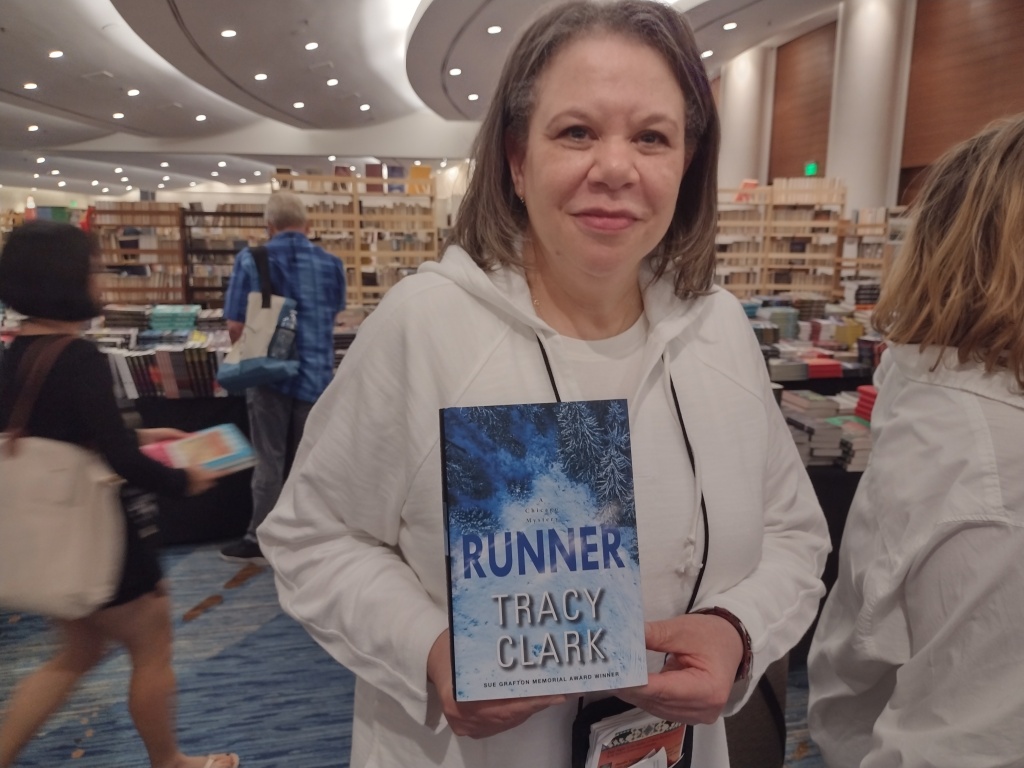
Bouchercon 2

Bouchercon 3

Bouchercon 4

Bouchercon 5
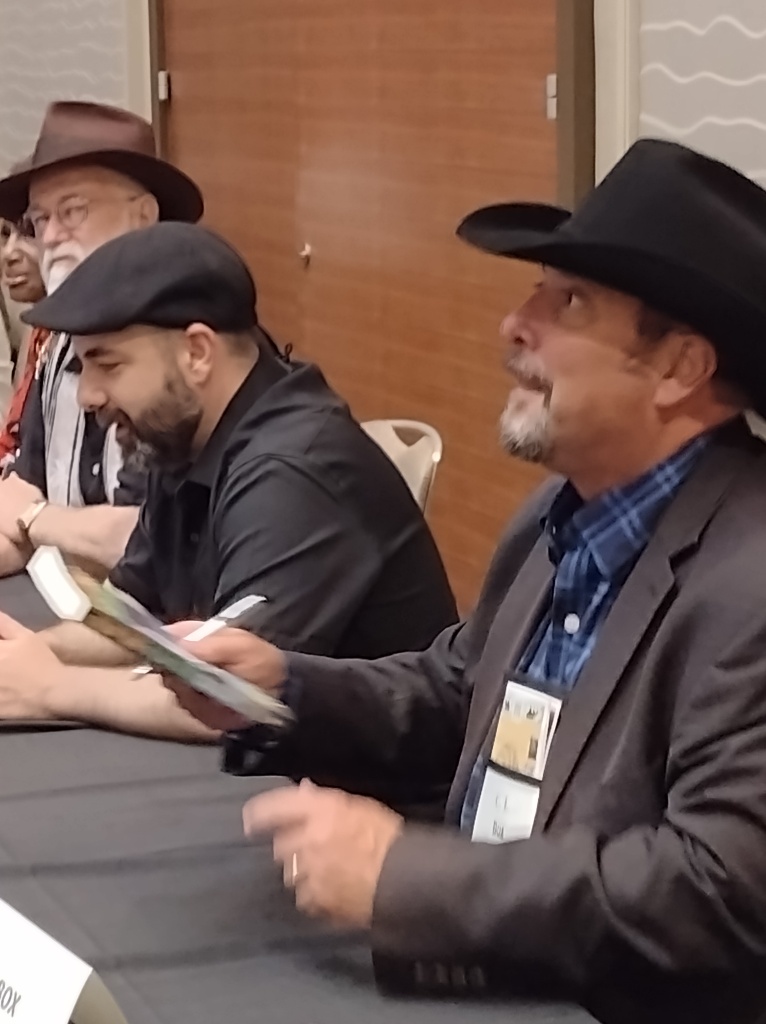
Bouchercon 6

Bouchercon 7
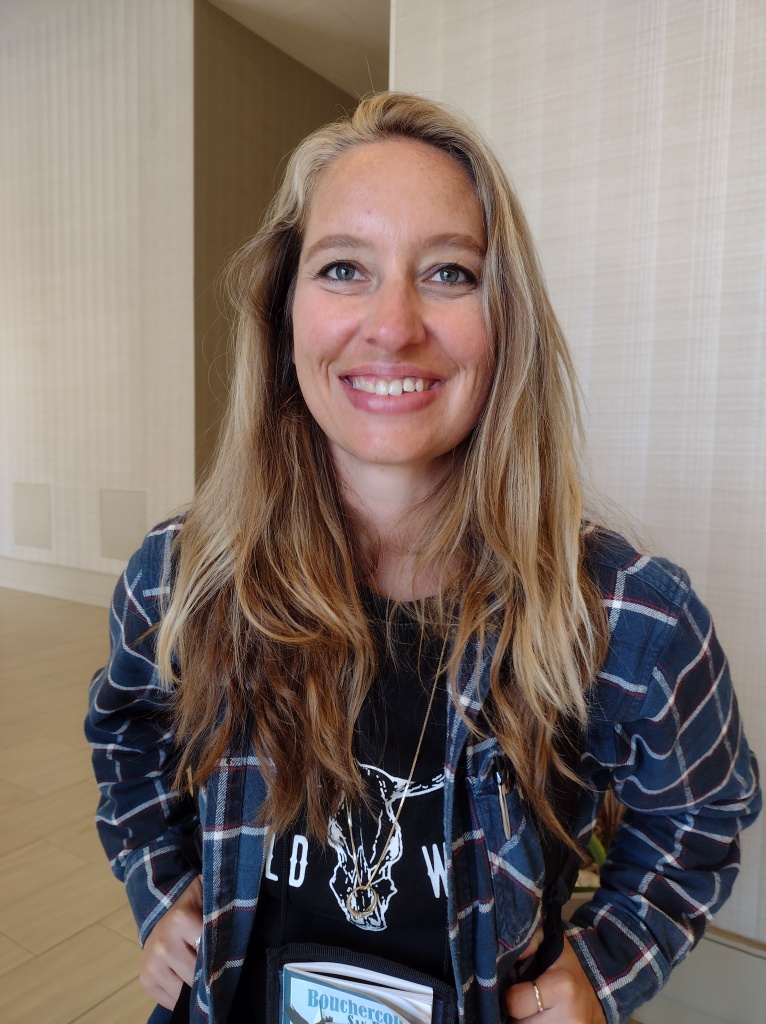
Bouchercon 8

Bouchercon 9

Bouchercon 10
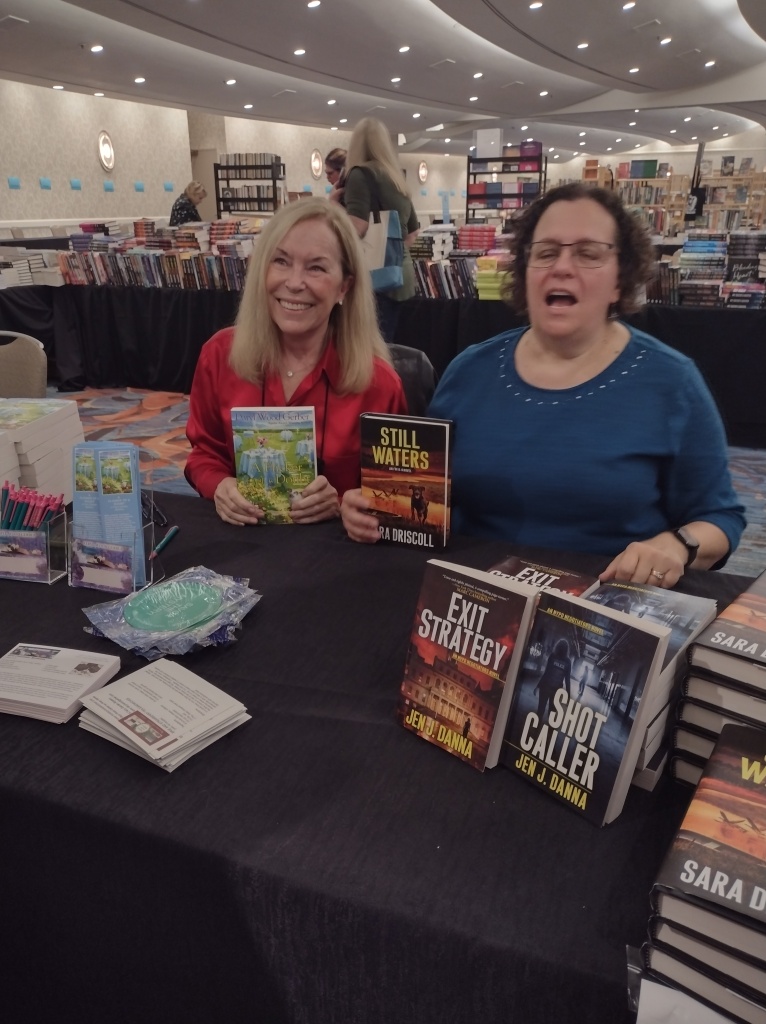
Bouchercon 11
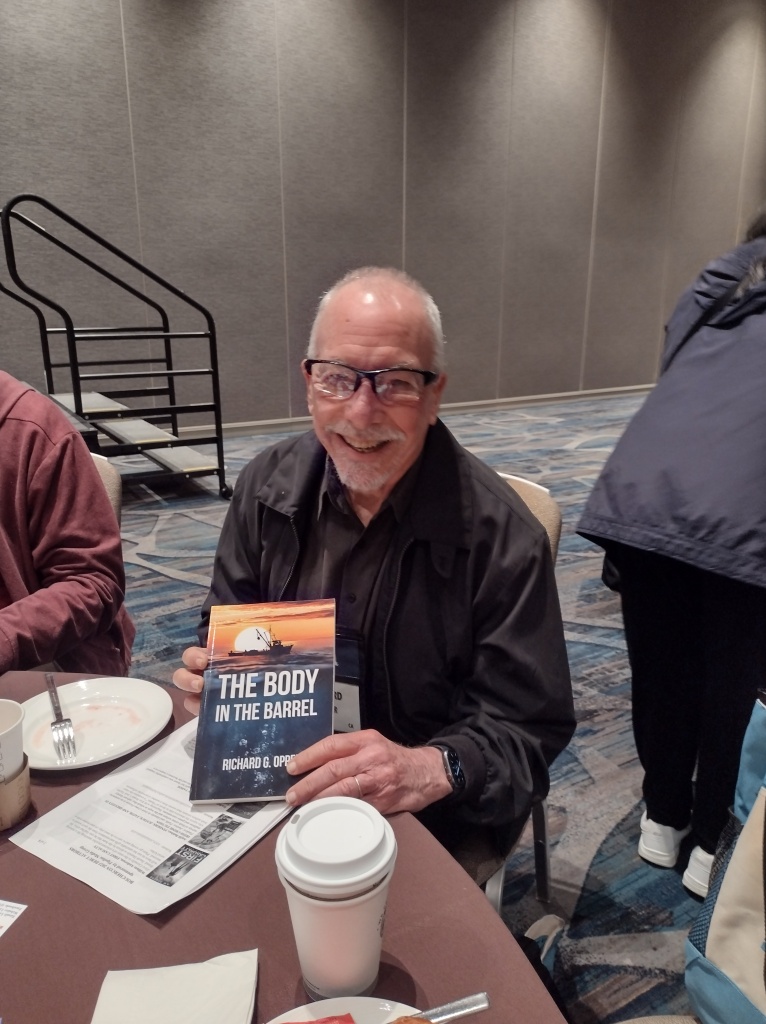
Bouchercon 12

Bouchercon 13
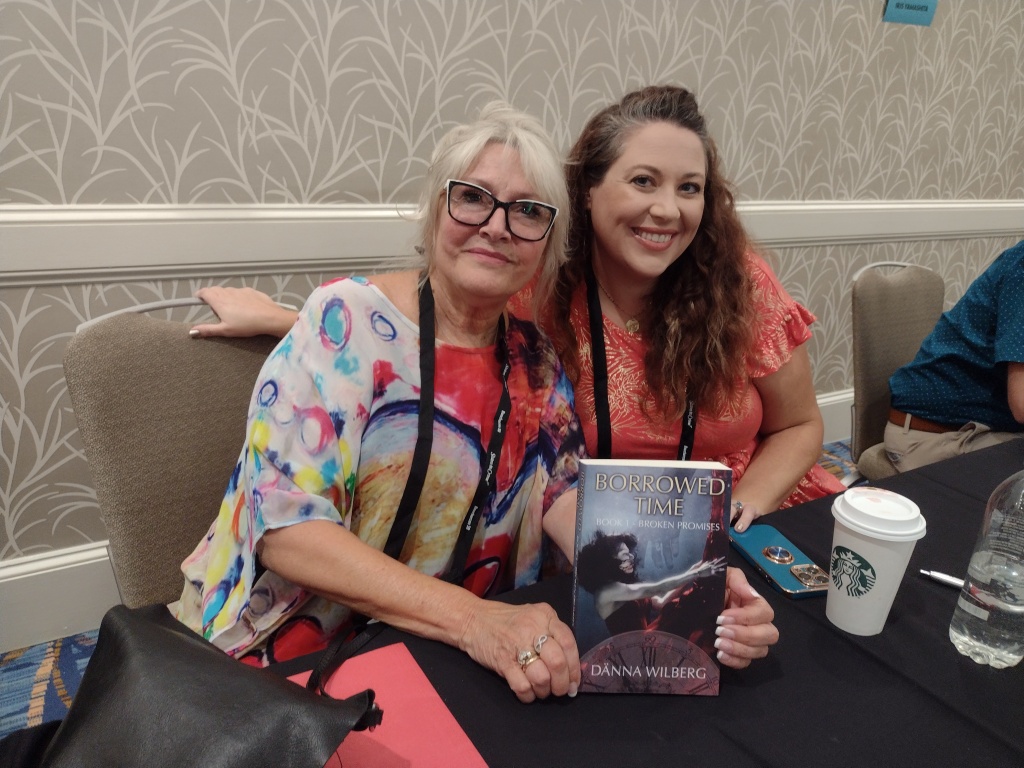
Bouchercon 14

Bouchercon 15

Bouchercon 16

Bouchercon 17

Bouchercon 18

Bouchercon 19

Bouchercon 20
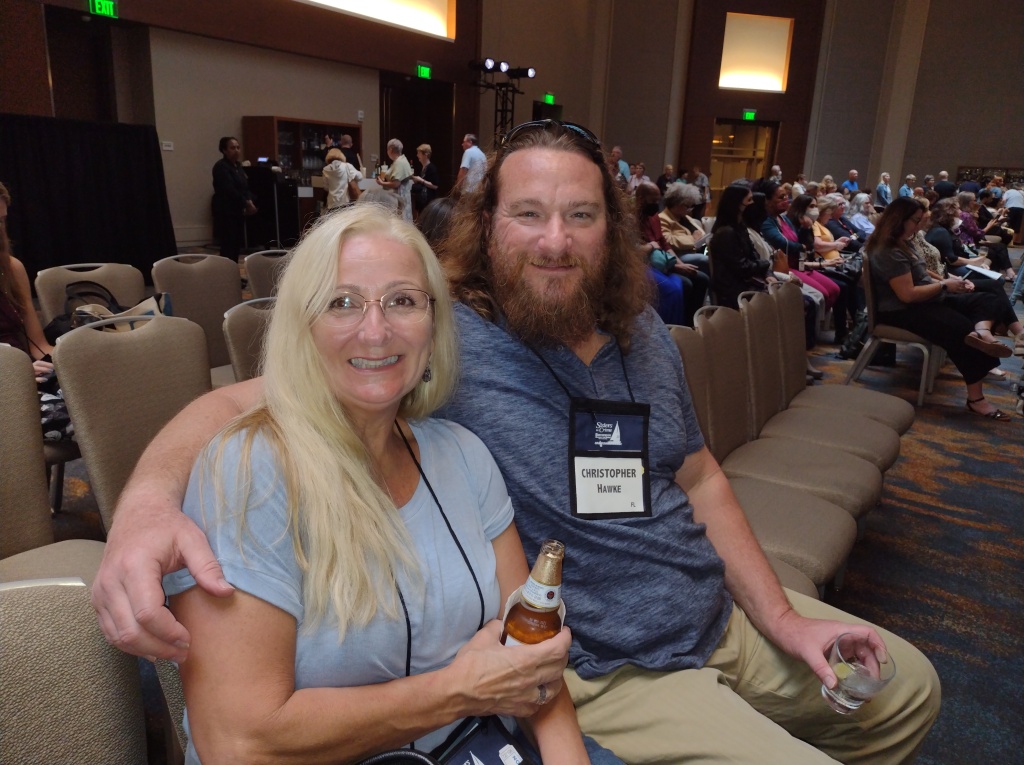
Bouchercon 21
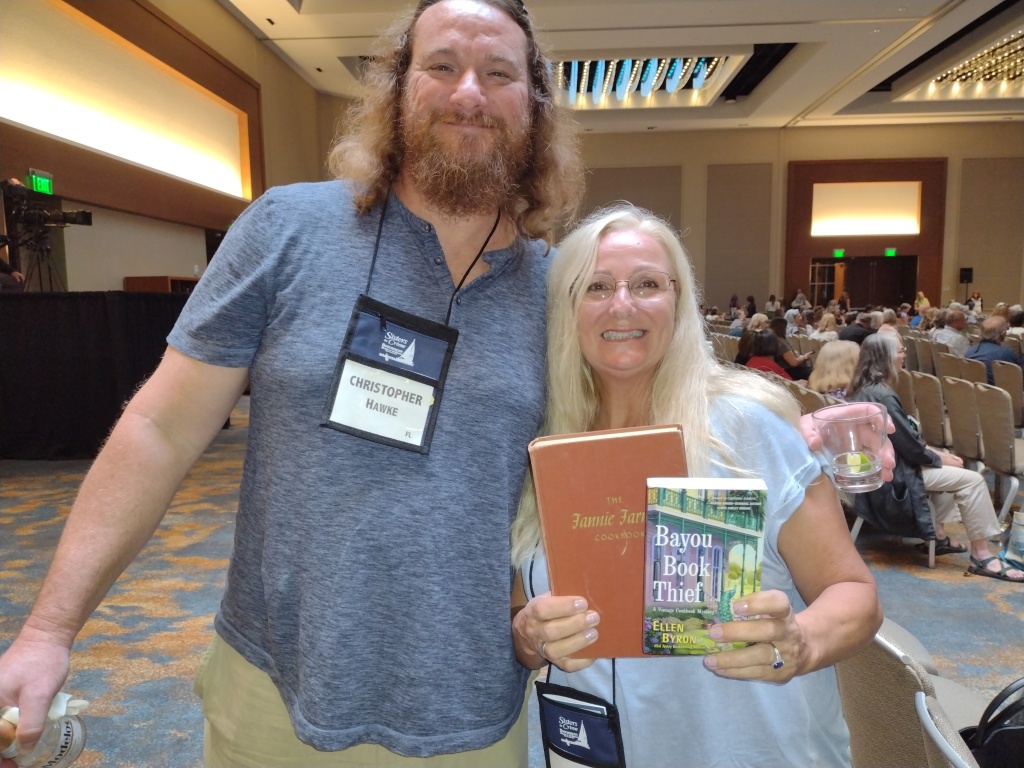
Bouchercon 22

Bouchercon 23

Bouchercon 24

Bouchercon 25

Bouchercon 26

Bouchercon 27
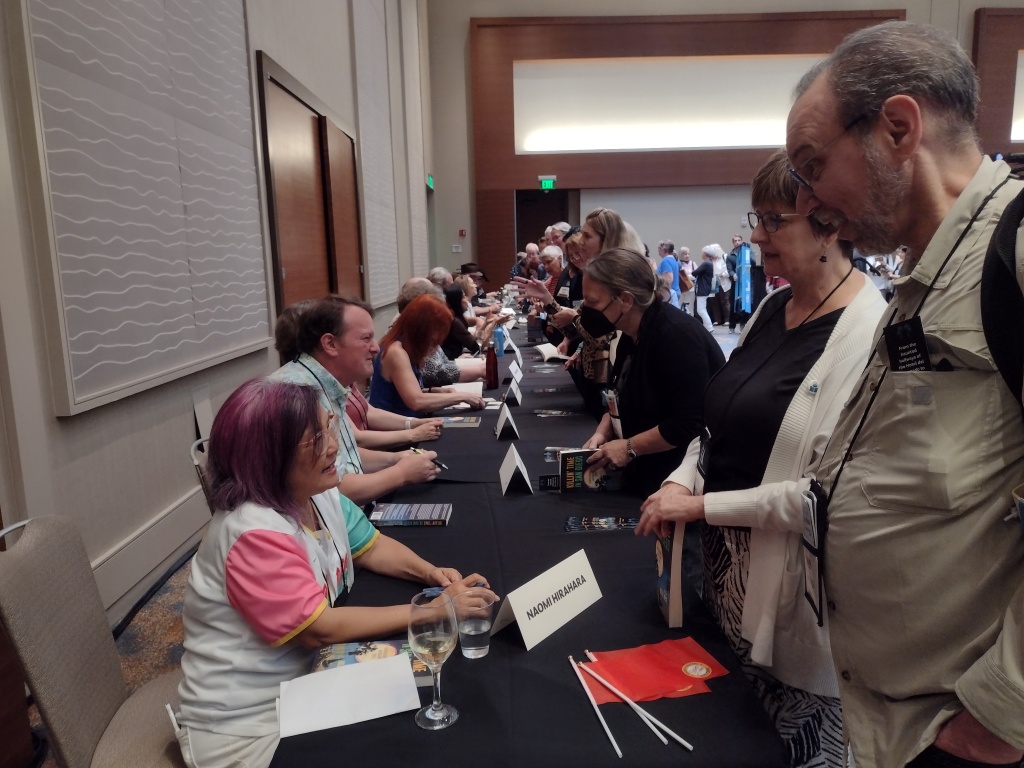
Bouchercon 28

Bouchercon 29

Bouchercon 30

Bouchercon 31

Bouchercon 32

Bouchercon 33

Bouchercon 34

Bouchercon 35

Bouchercon 36